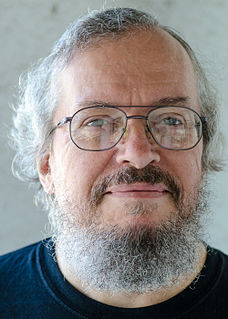A Quote by Michio Kaku
It's very dangerous to put astronauts on a moon base where there's radiation, solar flares and micro meteorites. It'd be much better to put robots on the moon and have them mentally connected to astronauts on the Earth.
Related Quotes
To send humans back to the moon would not be advancing. It would be more than 50 years after the first moon landing when we got there, and we'd probably be welcomed by the Chinese. But we should return to the moon without astronauts and build, with robots, an international lunar base, so that we know how to build a base on Mars robotically.
The view of earth is spectacular from space. Most people imagine that when astronauts look out the window of the shuttle they see the whole earth like that big blue marble that was made famous by the flights that went to the moon. But the shuttle is much, much closer than those astronauts were. So we don't see the whole planet, the whole ball at once, we just see parts of it.
I attended a big human space flight conference in Beijing and I was going as myself. And really, there weren't any NASA astronauts there, I was the only so-called American Astronaut there. We had astronauts from most of the other countries, certainly from Russia, from France, from Japan, several other countries, but it was a little bit odd because here we are at an international gathering of a lot of astronauts and I'm talking about somewhere upwards of 30 or so astronauts, and I'm the only American. And I wasn't even there in an official capacity.
There was just one moon. That familiar, yellow, solitary moon. The same moon that silently floated over fields of pampas grass, the moon that rose--a gleaming, round saucer--over the calm surface of lakes, that tranquilly beamed down on the rooftops of fast-asleep houses. The same moon that brought the high tide to shore, that softly shone on the fur of animals and enveloped and protected travelers at night. The moon that, as a crescent, shaved slivers from the soul--or, as a new moon, silently bathed the earth in its own loneliness. THAT moon.



































